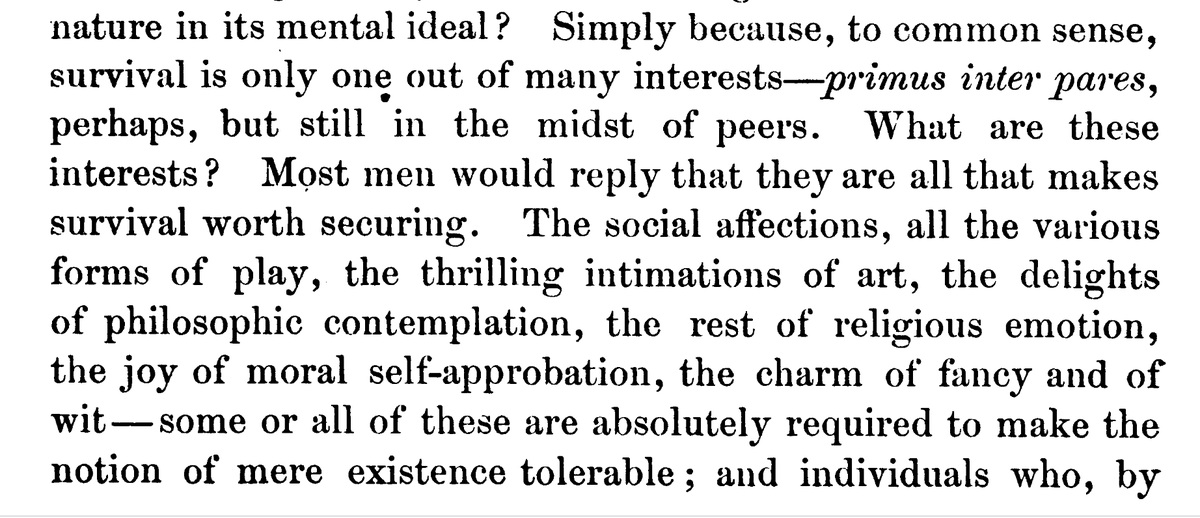Thinking of William James& #39; critique of Herbert Spencer& #39;s theory of psychology and what it can mean for us, especially today. 1/
Paper by James here
http://www.unav.es/gep/RemarksOnSpencersDefinitionOfMind.pdf">https://www.unav.es/gep/Remar...
Paper by James here
http://www.unav.es/gep/RemarksOnSpencersDefinitionOfMind.pdf">https://www.unav.es/gep/Remar...
Herbert Spencer (1820 – 1903) was a proponent of social Darwinism and he& #39;s noted for the phrase "survival of the fittest". His book The Principles of Psychology (published 1855, before Darwin) aimed to put psychology on the footing of biology, with laws that we could discover 2/
Though the first edition of Spencer& #39;s Principles of Psychology was published before Origin of Species (1859), i.e., Darwinian, he was wanted to apply evolutionary principles to psychology - notably Lamarck, and he tried to understand animal psychology as adaptation. 3/
Spencer thought that psychology, a science that scarcely existed when he wrote, could be seen as a "specialized part of biology", and biology in its turn is a specialized part of Geogeny [Geology]" (Principles of Psychology, part 1). His aims were to unify the sciences. 4/
Now, what& #39;s James& #39; problem with Spencer& #39;s laudable attempt to try to reduce psychology to biological principles of adaptation and survival? Well, for James, Spencer& #39;s mistake is trying to reduce mental life to concerns of survival and reproduction 5/
If cognition is only about an animal& #39;s representation of the environment (to help it survive and reproduce), then what of "all sentiments, all aesthetic impulses, all religious emotions and personal affections?" asks James. 6/
In Spencer& #39;s view the summum of mental development would be "a creature of superb cognitive endowments... in whom all these gifts [of perception and cognition] were swayed by the single passion of love of life, of survival at any price." 7/
Would we admire such an uber-survivalist being? We wouldn& #39;t, according to James. "Simply because, to common sense, survival is only one out of many interests" and these reductionist attempts to see psychology as a function of biology don& #39;t do our interests justice. 8/
"What are these interests? Most men would reply that they are all that makes survival worth securing. The social affections, all the various forms of play, the thrilling intimations of art, the delights of philosophic contemplation..." 9/
"the rest of religious emotion, the joy of moral self-approbation, the charm of fancy and of wit - some or all of these are absolutely required to make the notion of mere existence tolerable".
Here, James makes important claims that deserve our continued attention, I think. 10/
Here, James makes important claims that deserve our continued attention, I think. 10/
James also continues to say that "the story-teller, the musician, the theologian, the actor, ..., have never lacked means of support, however helpless they might individually have been to conform with those outward relations which we know as the powers of nature."
Why?
11/
Why?
11/
Here James invokes a notion that is crucial for all American pragmatists, namely the interconnectedness of the individual in a broader society (see als Dewey on this).
"To the individual man, as a social being, the interests of his fellow are a part of his environment." /12
"To the individual man, as a social being, the interests of his fellow are a part of his environment." /12

 Read on Twitter
Read on Twitter


